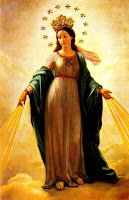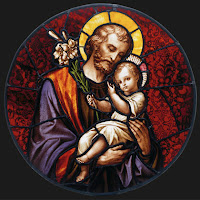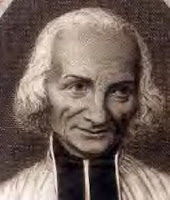JESUS, I TRUST IN YOU!
 |
| Our Belen for 2016 |
The true light, which enlightens
everyone, was coming into the world.
When the Lord Jesus was born, it
was in the middle of the night. People were fast asleep except the shepherds
who were keeping the night watch over their flock. Nobody knew that it was the
most awaited night, the night when the ancient promise of God was fulfilled.
Everything was hidden in the darkness of the night.
But what was hidden in darkness
will be proclaimed in daylight. Today, the Light of the world shines in the
darkness. Not even the darkness is able to overcome it. No amount of darkness
will ever limit the light. Light limits the darkness and not the other way
around. Light dispels the darkness. The darkness does not dispel the light.
Darkness is the absence of light. When the light comes, there is no darkness.
There is only one way for darkness to stay…and
that is by blocking the light. “He came to what was his own but his own people
did not accept him.” Light is refused by putting up a barrier to keep it from
penetrating the darkness. The barrier sort of protects the darkness from the
light. Hiding behind that barrier, a person remains in the dark.
But it is unfortunate that one
should refuse the light and choose the darkness. “For what came to be through
him was life, and this life was the light of the human race…” Life is light.
Where there is light, there is life. Living things grow under the light. Death
lurks in darkness. It would be sad if people choose the darkness because doing
so, they would choose death over life. And who wants to die? The desire for
death defies all logic. Everything that lives wants to remain alive. It would
do everything to be able to extend life even for one second more.
Light empowers. “Those who did
accept him, he gave the power to become children of God.” There can be no
higher dignity for man than to be a child of God. To accept the light is to be
chosen and loved by God as his dear children. This is the life he offers us. He
offers us the life of the children of God. And to do this, his light comes into
the world. “And the Word was made flesh and dwelt among us.” Like the sun at
Fatima which one can look at without hurting one’s eyes, the Light of the world
comes in the poverty of a little child. He is not a light that glares and
blinds. He is a light that beckons, a light that attracts by its beauty. The
sign of God is the poverty of a baby wrapped in swaddling clothes and laying on
a manger. The poverty of the human nature which he took upon himself makes the
unapproachable light of God less intimidating and more approachable. This Light
beckons us to go out of the dark. It draws us out of the darkness of sin and
death. It invites us to take away the barrier that shields us from his light
and life. It invites us to turn away from sin, to shun the works of darkness.
The seeming poverty of God makes people underestimate his power. Our impatience
to put things in order makes us resort to works of death: wars, killings,
violence. But the peace and order that comes out of it is simply the silence of
cadavers, the silence of cemeteries.
If only the world would accept Christ
the Light, then it would receive from the fullness of his grace, grace upon
grace. “Grace and Truth came through Jesus Christ.” This is the true life giving grace. The mercy
of the Christ Child is one that truly transforms and gives eternal life. It is
the one that opens and fills paradise and not graves. “The Lord restores Zion.
Break out together in song, O ruins of Jerusalem! The Lord comforts his people,
he redeems Jerusalem.”
If we accept Christ, he will reveal
God to us. “No one has ever seen God. The only Son, God, who is at the Father’s
side, has revealed him.” Let us accept him for the Lord does not desire ruin
for us but salvation. He desires not violence but peace. He desires not the
death of the sinner but that the sinner should turn to him and live.
O Mary conceived without sin, pray
for us who have recourse to thee!





















